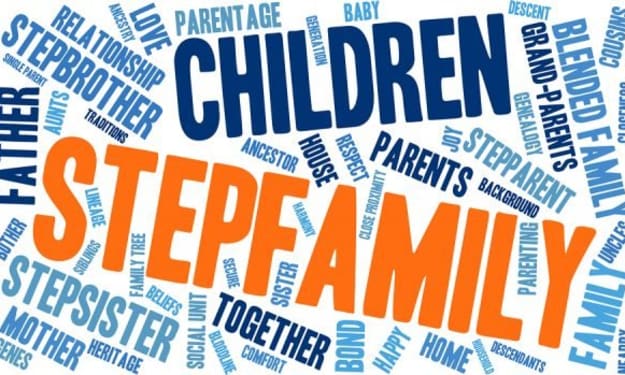Medicare and the Millennial
A Few Insights to What Awaits Us in Our "Golden Years" If the Medicare Healthcare System Doesn't Change

As we age, we can expect a few things to happen. Hearing and eyesight tend to fade, we move a little slower, and we wear sweaters more often because we'll get cold a little easier. But what about the things you don't account for? Like when you lose your teeth and you can't afford dentures. How are you going to eat? Or that scab on your foot that just isn't healing, but you can't afford to buy the antibiotic the doctor prescribed. Will you not pay your electric bill to buy the medication? Or when your spouse's memory is going and they can no longer take care of themselves, but you're recovering from a recent surgery yourself and can't walk for the next six weeks. Who's going to take care of the both of you when your family lives a thousand miles away?
These are very real fears and situations that seniors in the United States face every single day. I work for an insurance company that attempts to bridge the gap in care that seniors experience in their care, but often times, it's still not enough. At twenty-four years old, I never thought I'd be concerned about aging until I was ready to retire. I'll attempt to keep my anecdotal evidence relevant and stick to facts and statistics to illustrate the importance of changing the way we treat our seniors. Unless a serious undertaking is made in the care offered to seniors, we will suffer the same fate as our grandparents.
Medications are often a point of discussion when Medicare is mentioned. Specifically, the most often conversation I have with seniors about their insurance is how they're going to pay for their medications. This is one of the most complicated problems Medicare faces with its seniors. Some Medicare beneficiaries are on one or two medications, some might even be prescribed "as needed" rather than regularly dosed. There are some that are able to take generic versions, which dramatically reduces costs to them. Then there are those that are allergic to the generics and must take name brand, or there is no generic alternative to the medication they're being prescribed. There is no easy solution to this problem, since one solution will not solve everyone's need. In a study done by Robin A. Cohen, Ph.D. and Maria A. Villarroel, Ph.D. that was published to the Centers for Disease Control and Prevention (CDC) official website, it was found that people 65 and older use a variety of strategies to save money on their prescriptions, such as asking for alternatives or generics, buying them from a different country, or even delaying refills and skipping dosages. (2013, par. 2) Medications only work if taken as prescribed by a healthcare professional, and yet seniors are forced every day to decide whether they're going to eat or to pay for medications.
One of the most common medications I come across is Eliquis, a blood thinner that is meant to be taken strictly as directed by a doctor. Eliquis does not have a generic as of yet, and the retail price for this medication is around $450 for a 60 unit fill. (drugs.com, Oct. 2018) This is only made worse by the face that, unlike other commodities, medication is something that can't really be influenced by consumer use. If gas prices go up astronomically, the nation could boycott public transportation or personal cars in favor of other modes of transportation until gas companies reprice their goods. If food prices go up for certain products, consumers can switch brands, forcing that company to return to competitive pricing. Medications don't work like this. No one is going to boycott a medication that is going to save their life because a pharmaceutical company charges thousands of dollars for something that in all reality costs them maybe a hundred dollars to produce. Pricing is reliant on insurance companies to negotiate prices for their members, and those without insurance are often left without access to these medications. Those with insurance still face difficulties when the negotiations aren't favorable to them.
I remember one particular conversation I had with a member's wife calling about this medication her husband was just prescribed. He had just been released from the hospital after a stroke and his provider suggested Eliquis. She had called to check his copays, which were around $45 for a 30 day supply. She remained silent for a few moments before asking, "Is there a lower-tiered alternative? We can't afford an extra $45 a month." This is not an isolated case. All too often I guide members through money saving programs such as Medicaid through their state, local assistance programs through churches, or sometimes I'm only able to offer condolences and apologies. Again, while there is no one solution to fix the rising medication costs seniors face, one possible solution is to expand Medicaid prescription coverage to seniors. While this has a myriad of pitfalls, possible raise in taxes or abuse of the system, offering copay assistance to seniors who are living of $1,200 month in social security checks can make that $45 stretch a little farther. Those that can't work anymore are reliant on those of us who can.
When faced with long term care, many seniors look to their children for support. This comes in many forms such as care-giving where after-surgery wounds are dressed, medications are administered, and physical therapy is done at the home rather than at a facility. Those family members are generally also working to help support their own family and may not be officially qualified to perform these duties that should be done by a registered nurse or therapist. Yet this is the cheaper alternative than trying to find a company to do part time work for $10-$15 an hour that insurance, or Medicare, may or may not cover. But there are those that have nobody. Either they don't speak to their family, or they just live too far away to offer help. These seniors face long term care costs alone. The company I work for foots the bill for these costs, as long as it's part time work only, and all services rendered are medically necessary.
This is one of those benefits that I'm excited to tell my members about, because they know how expensive it is after surgery to have someone come out to the house and clean and dress the surgery wound and administer medications that can't simply be taken by themselves. According to the CDC, in the year 2013 alone, around 4.9 million patients received some type of long term care. (Harris-Kojetin, 2016) But this care doesn't extend to what's considered "custodial work." This would be housekeeping, laundry, food preparation, or even bathing. I've spoken to several people who live by themselves that are now almost completely immobile while they recover from surgeries. They ask me what they're going to do about bathing, how they're going to cook if they can't stand long enough to make something, or how they're going to do every day chores. And I usually have no solution. Really, this is as much of a Medicare problem as it is a societal problem. While Medicare could offer custodial care as part of the recovery benefit for seniors, we as members of society could take time out of our days to volunteer for those that need it, or help out our own family members. Cultures all over the world place such a huge importance on their elderly, ensuring they're cared for in their later years. Yet we prefer to shuffle ours off to nursing homes where we can forget about them instead of caring for them like they cared for us when we needed them. Baby Boomers have no shortage of younger family members to offer care to them, but this trend may change.
In a poll done by the New York Times in July 2018, it was found that the Millennial generation are having fewer children for a variety of reasons. Some explained they were taking care of other family members, likely in a care-giving role. Others cited the worry of the financial strain of having children or that they prioritize their educations and career paths. (Miller, fig. 1) While these are all commendable reasons, Millennials tend to be socially and ecologically conscious, this does worry some sections of the Baby Boomer population. With less of us and future generations, to take care of the elderly, this problem developing now is likely going to worsen. There simply aren't enough trained medical professionals to offer the care seniors need when they are no longer able to take care of themselves at a price that is affordable.
Getting old doesn't have to be a nightmare. While there are very serious problems that those already receiving benefits from Medicare are facing, there are those of us that haven't even thought about it yet. There are problems that I never even touched on in an effort to be brief. When I go to work, I attempt to help as many people as I can. But I'm only reaching a small section of the population. If I'm lucky, I talk to as many as thirty people a day. My intent here is to inspire others of my generation to be part of a desperately needed change in the way our society treats our elderly. Without them, we wouldn't be here. And when they're gone, we'll be there to fill the gap they leave behind. Our elderly shouldn't suffer the way they do, and it's up to the generations that follow them to ensure that they enjoy their golden years as much as they can.
Sources
Cohen RA, Villarroel MA. Strategies used by adults to reduce their prescription drug costs: United States, 2013. NCHS data brief, no 184. Hyattsville, MD: National Center for Health Statistics. 2015.
drugs.com. (Updated Oct. 1, 2018). Eliquis Prices, Coupons and Patient Assistance Programs. Retrieved from https://www.drugs.com/price-guide/eliquis.
Harris-Kojetin L, Sengupta M, Park-Lee E, et al. Long-term care providers and services users in the United States: Data from the National Study of Long-Term Care Providers, 2013–2014. National Center for Health Statistics. Vital Health Stat 3(38). 2016.
Miller, Clair Cain. (July 5, 2018). Americans Are Having Fewer Babies. They Told Us Why. The New York Times. Retrieved from https://www.nytimes.com/2018/07/05/upshot/americans-are-having-fewer-babies-they-told-us-why.html
About the Creator
Hali Moore
I’m currently attending university, seeking my bachelor’s Degree in Wnglish Literature. I hope to be a writer and inspire others in ways that literature has inspired me.






Comments
There are no comments for this story
Be the first to respond and start the conversation.